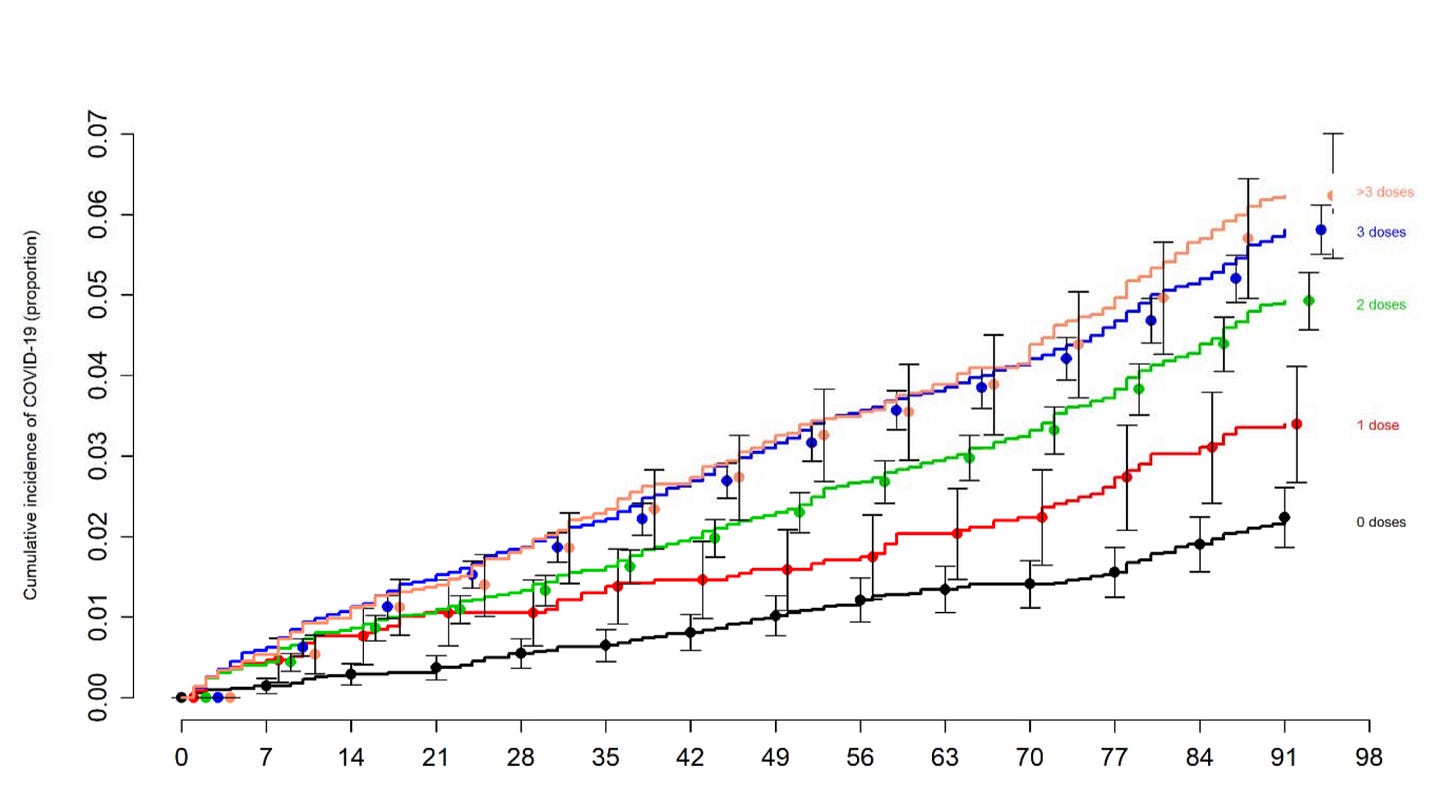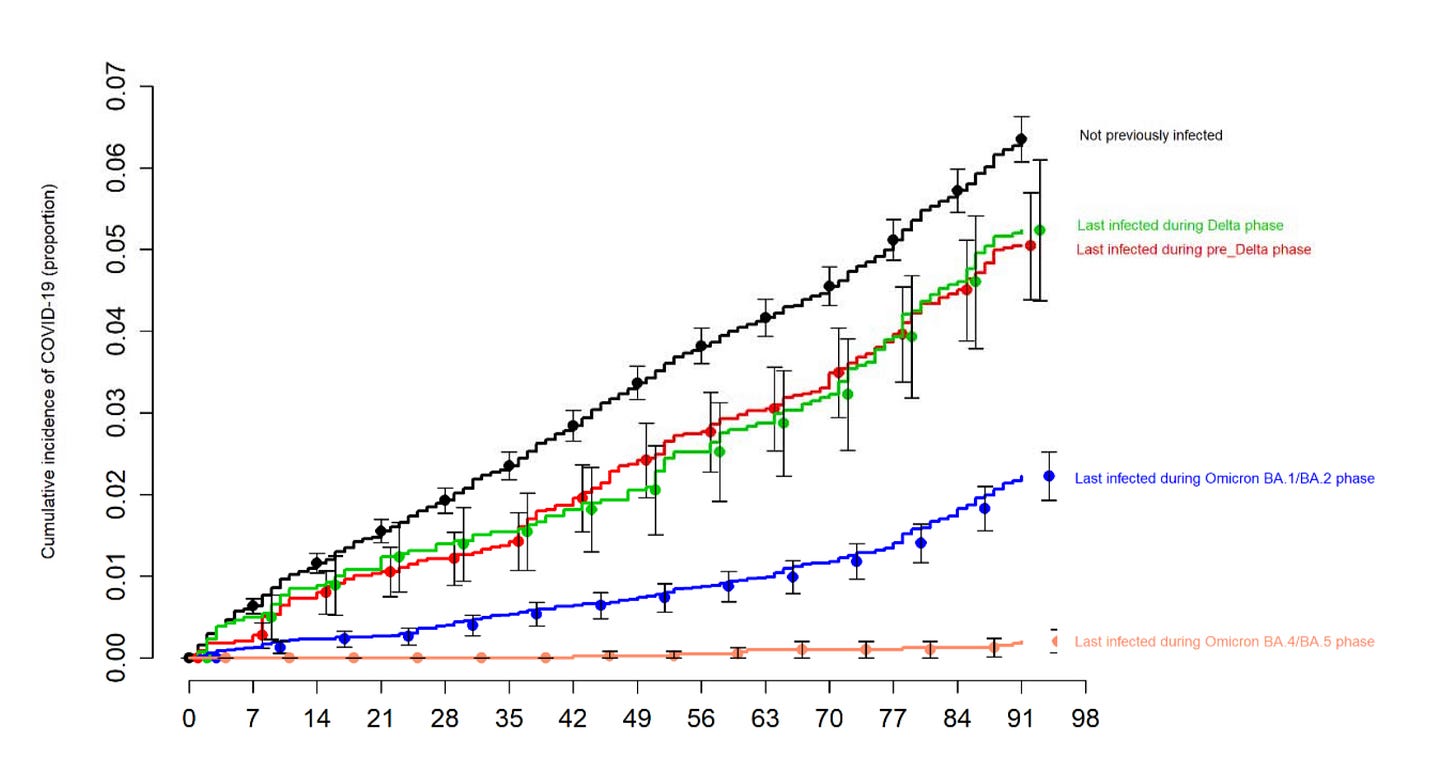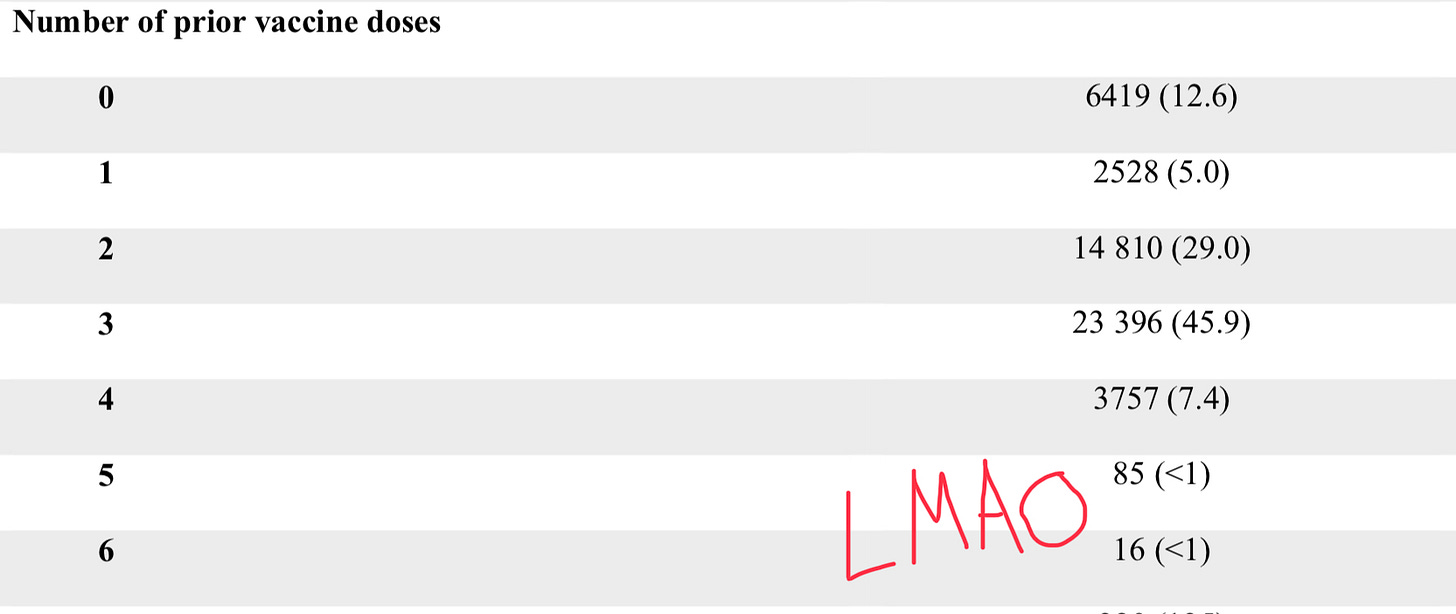Cleveland study conducted to demonstrate the clinical effectiveness of the bivalent vaccines accidentally finds that the risk of Covid-19 infection increases with each prior vaccination
Also too, the bivalent jab turned out to be no more than 30% effective at preventing Covid — and this at the height of BA.5 variant, against which it was targeted.
Because Pfizer only tested the effectiveness of their BA.5 bivalent vaccine on a handful of mice, there has been understandable interest in working out whether the shiny new jabs actually do anything in return for inflicting an unknown number of injuries and undesirable side-effects on the Pfizer Pfaithful. Towards this end, a few scientists at the Cleveland Clinic in Ohio have conducted a retrospective cohort study of Clinic employees who received the bivalent vaccine between September and December of this year. Most received the Pfizer cocktail, but 11% had the Moderna version.
Of 51,011 people ultimately included in the study, a mere 10,804 opted for bivalent vaccination. If anything shows that the stock of the vaccines is in freefall, it’s uptake this dismal at a major healthcare institution. The bivalently boosted were 30% less likely to be infected, in a study period where the vaccines and the circulating SARS-2 variants were for the most part perfectly aligned. In another blow to the logic of perpetual vaccination with subpar ineffective products, the authors note that their cohort had “too few severe illnesses for the study to be able to determine if the vaccine decreased severity of illness.” Because it’s severe outcomes and death, rather than infections, which matter, this is the same as saying the bivalent vaccines are totally pointless, especially in the younger cohort (mean age 42) studied here.
The real bombshell, though, is the authors’ accidental finding that risk of infection increases incrementally with each prior (non-bivalent) vaccine dose.
Behold the chart:

The authors note that Clinic personnel were required to obtain PCR tests to secure paid sick leave, which should mitigate at least somewhat the effects of testing bias.
Their discussion of this point is more honest than you’d expect:
The association of increased risk of COVID-19 with higher numbers of prior vaccine doses in our study, was unexpected. A simplistic explanation might be that those who received more doses were more likely to be individuals at higher risk of COVID-19. A small proportion of individuals may have fit this description. However, the majority of subjects in this study were generally young individuals and all were eligible to have received at least 3 doses of vaccine by the study start date, and which they had every opportunity to do. … This is not the only study to find a possible association with more prior vaccine doses and higher risk of COVID-19. … We still have a lot to learn about protection from COVID-19 vaccination, and in addition to a vaccine’s effectiveness it is important to examine whether multiple vaccine doses given over time may not be having the beneficial effect that is generally assumed.
You know what is effective against infection, though? Prior infection. The more recent that infection, and the more related the variant, the better:
Someone might even be tempted to reason from both of these graphs simultaneously, that the only thing keeping SARS-2 in the headlines is the vaccines that were supposed to save us.
Oh, one last thing. Lurking in the tables at the end, in this chart of how many doses their participants received, is this little nugget:
Eighty-five employees of Cleveland Clinic submitted to five vaccine doses prior to the release of the bivalent vaccine, only to be outdone by the 16 heroic vaccinators at the bottom of the chart, who somehow managed to secure no less than 6 doses for themselves by September of this year. There are a small but very real number of people out there, who are compulsively vaccinating every three months or so. Think about that.




This pandemic has caused a lot of people serious psychological harm and, for a large amount of people, this won't ever heal.
Anecdotally, I'm seeing this play out in the real world. Coworkers, friends and family that are vaxxed seem to be the ones getting ill more frequently and more severely (some for weeks on end). Those of us who abstained from the miracle jabs are not getting sick and if we do, it's very mild - almost undetectable.